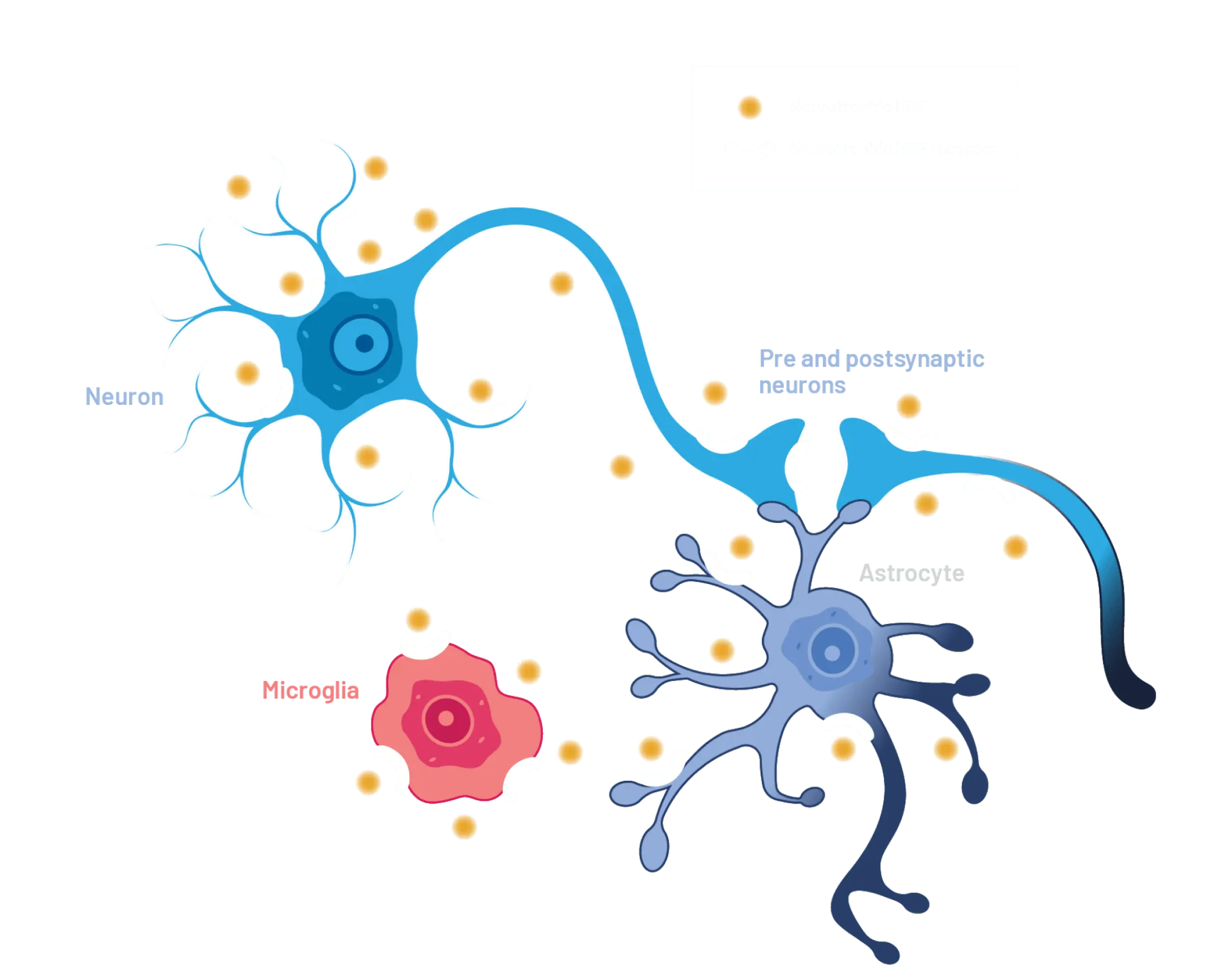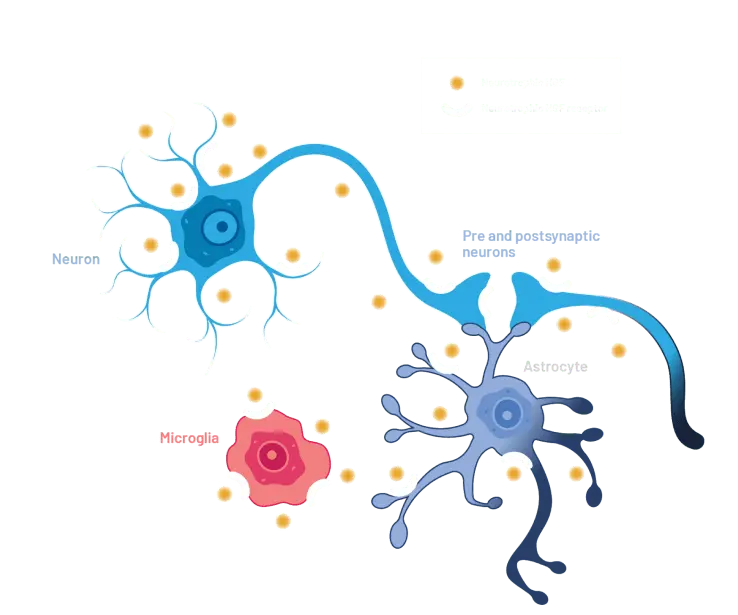This site is intended for US healthcare professionals
Neurotrophic hepatocyte growth factor (HGF)
plays a critical role in brain health1,2
An essential system for protection and repair
Years of research support that neurotrophic HGF is an important regulator for protection and repair in the healthy brain. This system may be compromised in neurological conditions, including Alzheimer’s disease (AD).1,2
Neurotrophic HGF in the healthy brain
Neurotrophic HGF in the AD brain


Activation of HGF signaling triggers intrinsic neurotrophic and neuroprotective effects in the healthy brain1
- Neurotrophic HGF signaling actively responds to neurotoxic insults, including in the frontal cortex and hippocampus, two brain regions implicated in AD3-5
- Preclinical models demonstrate the pleiotropic effects of neurotrophic HGF in protecting neurons from various insults, including inflammation, oxidative stress, excitotoxicity, and preventing apoptosis.1 By preserving neuronal health and function, neurotrophic HGF supports learning and memory7-9
References:
1. Desole C, Gallo S, Vitacolona A, et al. HGF and MET: from brain development to neurological disorders. Front Cell Dev Bio. 2021. doi:3389/fcell.2021.683609 2. Takeuchi D, Sato N, Shimamura M, et al. Alleviation of Ab-induced cognitive impairment by ultrasound-mediated gene transfer of HGF in a mouse model. Gene Ther. 2008;15(8):561-571. 3. Wei J, Ma X, Nehme A, Cui Y, Zhang L, Qiu S. Reduced HGF/MET signaling may contribute to the synaptic pathology in an Alzheimer’s Disease mouse model. Front Aging Neurosci. 2022. doi:10.3389/fnagi.2022.954266 4. Johnston JL, Reda SM, Setti SE, et al. Fosgonimeton, a novel positive modulator of the HGF/MET system, promotes neurotrophic and procognitive effects in models of dementia. Neurotherapeutics. 2023;20(2):431-451.